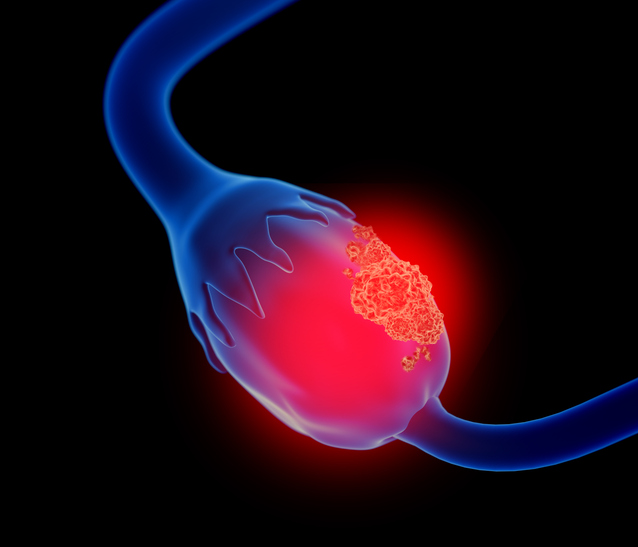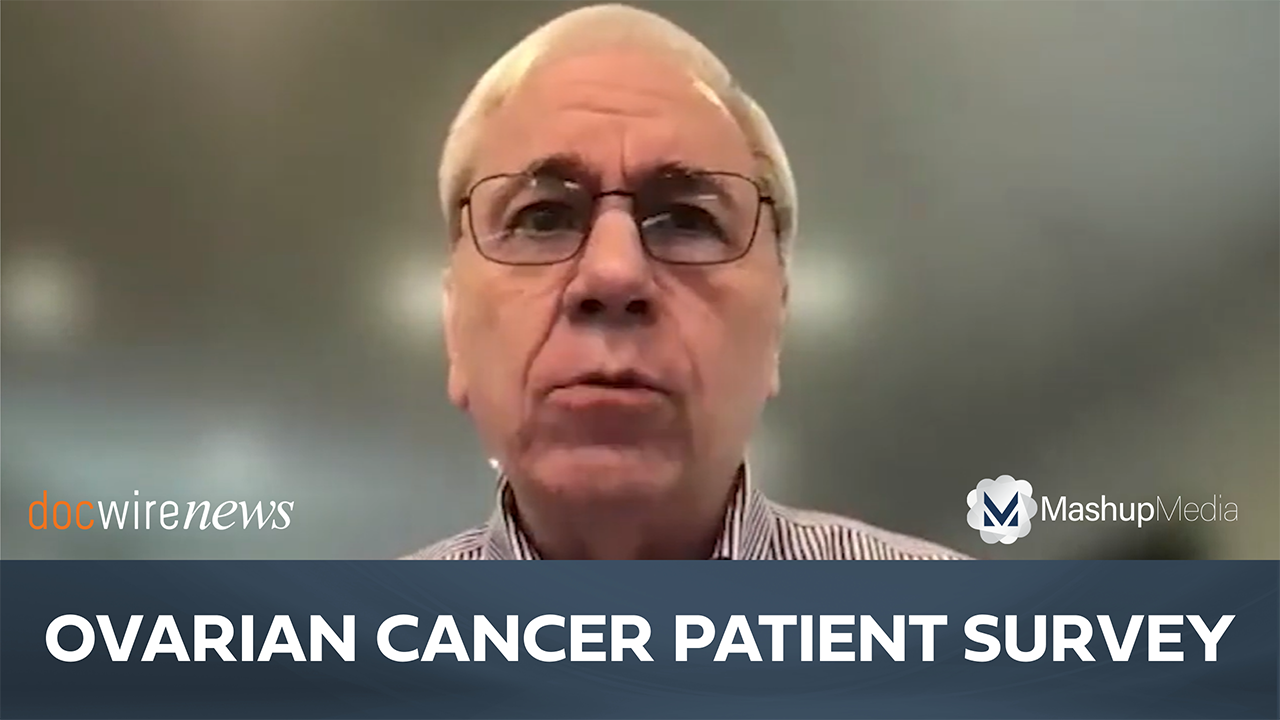Dr. Grisham Discusses Start of Phase 2 Trial on Investigational RAF/MEK Inhibitor in Ovarian Cancer
By Kaitlyn D’Onofrio - Last Updated: April 11, 2023Rachel N. Grisham, MD, Section Head, Ovarian Cancer and Director, Gynecologic Medical Oncology at Memorial Sloan Kettering Cancer Center in Westchester, NY, and Andrew Koustenis, Global Program Leader, Verastem Oncology, discuss the launch of a phase 2 trial evaluating VS-6766, an investigational RAF/MEK inhibitor, alone and in combination with defactinib in patients with recurrent low-grade serous ovarian cancer.
DocWire News: What prompted you to undertake this study?
Dr. Grisham: My research focuses on low-grade serous ovarian cancer, which is a rare form of ovarian cancer that affects about 5 to 10% of women diagnosed with ovarian cancer. Now, this is a disease that has a real unmet need. Response rates to chemotherapy are much lower than with other subtypes of ovarian cancer, such as high-grade serous ovarian cancer. But it does have a unique molecular profile with a high rate of KRAS mutations and other alterations affecting the MAP kinase pathway found in tumors from patients with this disease.
Recently, MEK inhibitors as a single agent have shown good response rates for patients with this disease, with response rates as a single agent as high as 25%. But we, of course, want to build on that and get better responses for our patients. So this study, this phase two study, looks at a novel MEK RAF inhibitor, in combination with a FAK inhibitor, to try to get better responses for our patients with recurrent low-grade serous ovarian cancer. There was very promising data produced by an ongoing study called the Frame Study, which showed durable responses in patients with low-grade serous ovarian cancer when treated with this combination. So now, hopefully, this larger study will allow us to see these responses across patients around the world and hopefully have better options for treatment of this disease.
DocWire News: What are the key takeaways from the study?
Dr. Grisham: The planned study is a phase two study that will be opening in the United States, as well as across Europe at multiple different sites. It’s being done in Europe through ENGOT and in the United States through GOG Partners Foundation, and will enroll patients with recurrent low-grade serious ovarian cancer. This study is just opening now and will hopefully be a unique opportunity for many women with this disease.
DocWire News: Can you talk a little bit about the previous study, and then in comparison to what this study will be looking into?
Dr. Grisham: The FRAME Study was an investigator-sponsored study, looking at the combination of VS-6766 MEK RAF inhibitor in combination with a FAK inhibitor, defactinib. That study has shown a durable, ongoing response in multiple patients with low-grade serious ovarian cancer that were treated in that study. Among the first 17 patients that were treated, a response rate of 41% was seen in patients with low-grade serous ovarian cancer. When we’re looking specifically at those patients with KRAS mutation, the response rate was greater than 50%, so showing that KRAS may potentially serve as a biomarker predicting for those patients most likely to respond to the combination.
DocWire News: In setting up for the second study, has anything come up so far that might be a surprise or maybe different from the previous study? Or are you expecting everything to be pretty similar?
Dr. Grisham: Well, whenever using targeted therapies, we always do need to be aware of potential toxicities and preparing for those. So we’ve gained valuable information from the FRAME Study, and from other phase 3 studies of MEK inhibitors in low-grade serous ovarian cancer, that allow us to prepare both the providers and the patients for the expected side effects of these targeted therapies that can include side effects like rash and GI toxicity, and in some cases, vision changes. But, however, if we properly prepare for these possible side effects, it makes us much better able to manage any potential toxicity. So we’ve really learned a lot through these prior studies and are now prepping our investigators to be able to safely administer these medicines to our patients so that they can have the best chances of having durable responses.
DocWire News: Dr. Grisham, I’m going to ask you if you have any last comments or anything else about the study that you would like to share. And then after you’re finished with your comments, then I’ll open it up to Andrew. If you could, Andrew, also introduce yourself before you begin your talk. We’ll start with Dr. Grisham.
Dr. Grisham: I’d just like to say that I’m very excited about this new phase 2 study opening and for patients with recurrent low-grade serous ovarian cancer. These patients are in need of more treatment options. And there’s been a real lack of studies looking at novel combinations for treatment of this disease. So we’re very much look forward to opening this study across the world and hopefully having a new option for our low-grade serous ovarian cancer patients.
Andrew Koustenis: This is Andrew Koustenis with Verastem Oncology. I would just like to say on behalf of Verastem, we’ve been very excited to have announced earlier this week the initiation of this study. And [as] has been mentioned, this study was in partnership with the GOG Foundation in the United States and ENGOT in Europe, and that’s a real pleasure and opportunity for Verastem as we evaluate this novel RAF MEK combination to see outcomes in a group of patients with a low-grade serious ovarian cancer, as has been mentioned, a group of patients with an unmet need and we certainly hope we’re able to fill that. Thank you.







 © 2025 Mashup Media, LLC, a Formedics Property. All Rights Reserved.
© 2025 Mashup Media, LLC, a Formedics Property. All Rights Reserved.